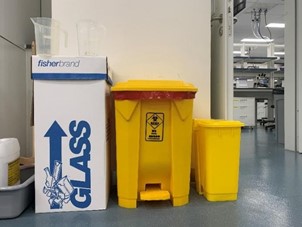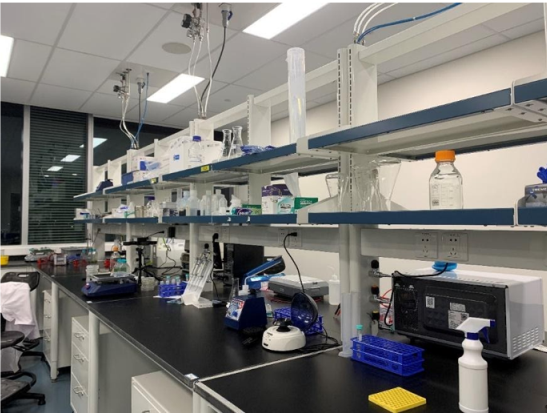Safety form:
Our team uses E.coli (BL21 and DH5), as a chassis organism, that does not present minimal potential hazard to laboratory personnel and the environment. As our lab aims to modify E.coli to construct biological systems that can produce algicidal peptide that could selectively degrade Microcystis Aeruginosa, the risks of using algicidal peptide HPA3NT3-A2 and Microcystis Aeruginosa PCC7806 are also under consideration. Biological wastes are managed in accordance with the biohazardous waste disposal policy and procedures as following:
-
1. Although previous literature has suggested that HPA3NT3-A2 originated from Helicobacter pylori presents low hemolytic and cytotoxic effects on mammalian cells (Lee & Park, 2020). We considered the possibility that HPA3NT3-A3 might harm other microorganisms, and therefore potentially influence the ecosystem of the water body when escaped from the lab. The high temperature of autoclave (121℃) will lead to inactivation of the peptide.
2. Microcystis Aeruginosa PCC7806 can potentially cause harmful algal bloom (HAB) when it’s accidently escaped into surrounding bodies of water. Therefore, the liquid waste of algae must be completely decontaminated either chemically (by using disinfectant) and physically (by using autoclave) prior to disposal as specified in the biosafety manual.


